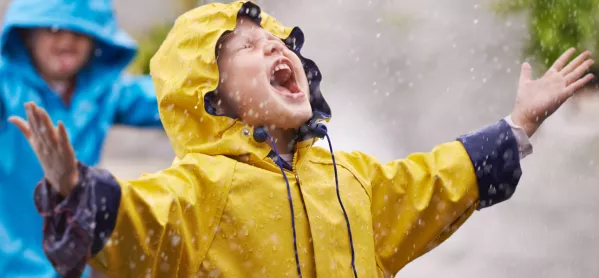I have a problem with the term “playtime”. The refrain “playtime is over, it’s time to start learning” is a common one, as diligent teachers make sure they are maximising time in class and ploughing through their carefully planned lessons for the day.
But what message are we are giving our young people about the value of play and playing?
Early in my training as an EYFS teacher, I became an ardent disciple of Friedrich Froebel and his impassioned belief that play is the “highest expression of human development in childhood, for it alone is the free expression of what is in the child’s soul”.
If, as educationalists, we are not seeking to create environments in which this is a primary concern, how can we expect wider academic outcomes to follow?
Play vs learning: the false binary
Consigning play to brief interludes during the school day creates a false binary. It tells our children that the playground is for playing (briefly) and the classroom is for learning; never the twain shall meet.
The reality is, however, that regular, extended and unadulterated play has the capacity to enhance the outcomes that all school leaders and teachers aim to deliver.
Michael Rosen’s Book of Play highlights the opportunities that informal, free-flow play gives to “invent, improvise, adapt, be creative with the world around you and with the world inside your own head”.
If awarded high status in our schools, play will positively enhance pupil wellbeing, promote emotional literacy, connect children to their inner sense of self, allow for the development of greater independence and provide space to help children not only process the world around them but strengthen schema-building and the cognitive processes associated with deep learning.
Post-pandemic play
In the context of the pandemic, play takes on an even more precious role. Covid-19 has shone a light on the divisions and inequalities that exist across our society but, as schools return to a kind of business as usual, the opportunity exists to harness play and its power to help children process the experiences of the past year.
But many schools, eager to compensate for “lost learning”, are instead cutting playtimes short. At Wimbledon High School, we took the decision when school reopened in March to extend our school day by 30 minutes for our youngest pupils.
Play and social downtime have been the focus of this additional time, with our morning break time extended by 10 minutes and flexibility given to teachers on how to use the remaining time to best suit the age and stage of the pupils they teach.
Now is the time to make changes that will recast the status of play, its value in our schools and families and, ultimately, in the childhoods we are all committed to celebrating, supporting and protecting.
1. Praise play
Celebrate free-flow, unstructured play by showing children you recognise its value and importance in all aspects of development and wellbeing
2. Make marginal gains
Look for ways to protect or extend time devoted to play; 5 or 10 minutes extra time devoted to play each day (either as playtime or time in the classroom) could deliver a significant cumulative shift over the course of a term.
3. Engage parents
Ensure that parents understand why play is important and the role they can take in promoting holistic attitudes to undirected, spontaneous play and ensuring they make time for it at home.
4. Embrace boredom
The liminal space that boredom provides is where play is created (improvised), so look for opportunities for children to sit comfortably in this space and see it as somewhere to experiment.
5. Revisit the giants of play
Froebel, Montessori, Piaget and Rosen have all written extensively on play; what it means, what it can deliver and how you can make it happen.




